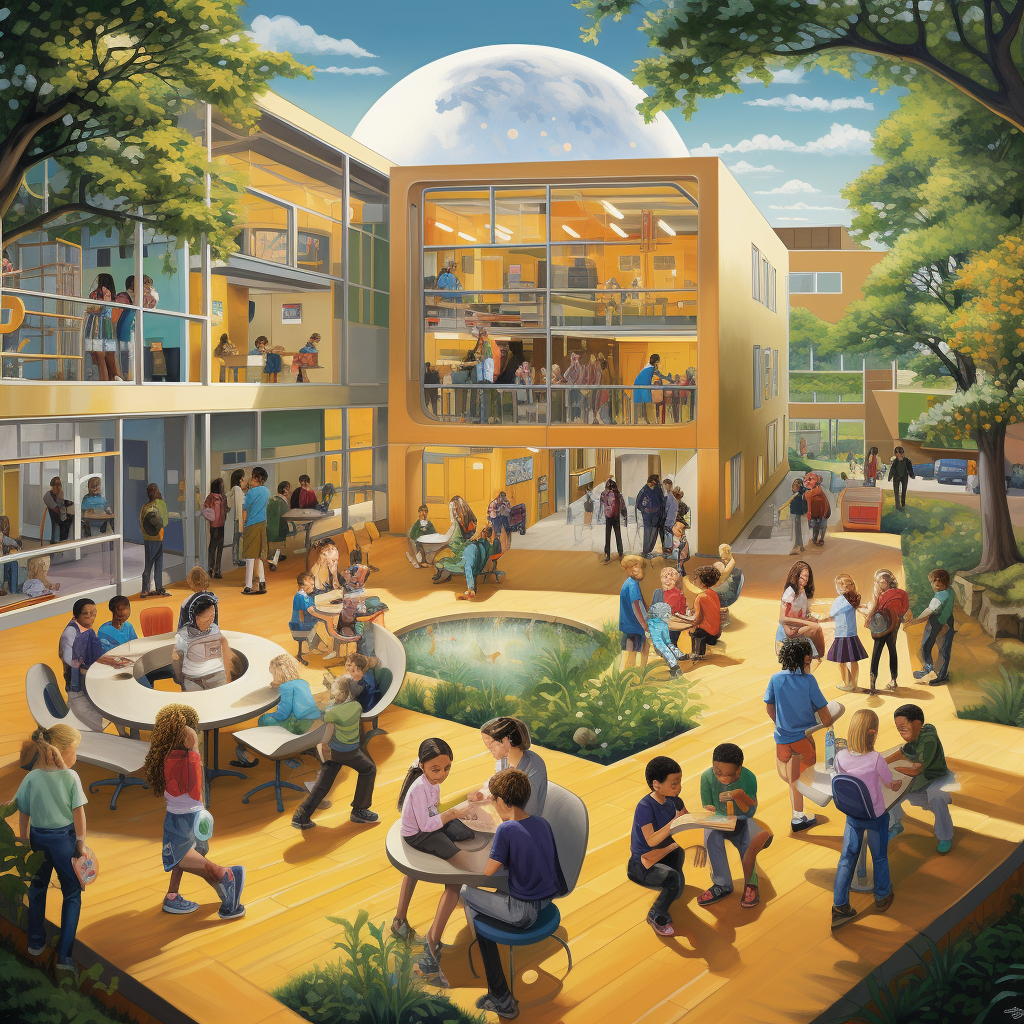Why Gifted Students Absolutely Need Differentiation
Gifted learners possess unique cognitive abilities that set them apart from their peers. These children often demonstrate advanced levels of reasoning, problem-solving skills, and an insatiable curiosity about the world around them. However, without the proper educational environment, these innate talents can remain untapped, leading to boredom and a lack of engagement in traditional classroom settings. It is precisely why gifted students need differentiation—to nurture their exceptional potential and ensure they continue to grow intellectually and emotionally.
At Vanguard Gifted Academy, we understand that one size does not fit all when it comes to education, especially for those with distinct learning capabilities. Our programs are meticulously designed to offer personalized learning experiences that align with each student's readiness level. We integrate STREAM into our curriculum, which stands for Science, Technology, Research, Engineering, Arts, and Mathematics, ensuring a holistic and challenging educational journey for gifted minds.
Recognizing the importance of social-emotional learning, we also prioritize the development of self-awareness and confidence in our students. By doing so, we prepare them not only for academic success but for meaningful participation in society as well. If you wish to explore how Vanguard Gifted Academy can meet the needs of your gifted child, email us for more information or to schedule a tour.
The Importance of Personalized Learning Pathways
Personalized learning pathways are essential for gifted students as they provide tailored educational experiences that match each student's unique pace, interests, and level of mastery. In a traditional classroom, the pace of instruction is often dictated by the average student's learning speed, which can lead to gifted learners feeling unchallenged and disengaged. By contrast, personalized learning pathways are designed to stretch the capabilities of gifted students, providing depth and complexity in learning that can keep these bright minds actively engaged and motivated.
At Vanguard Gifted Academy, students are not bound by grade-level expectations. Instead, our educators assess each child's strengths and areas for growth, creating a curriculum that advances their skills and knowledge in a meaningful way. This approach ensures that students are not merely skimming through materials they already understand but are instead delving deeper into subjects, fostering critical thinking and problem-solving skills that will serve them throughout their lives.
Moreover, personalized learning pathways allow for a degree of autonomy and choice, which can be particularly motivating for gifted learners. They have the opportunity to pursue their passions and interests, which can lead to a more profound commitment to their education and an increased sense of ownership over their learning journey.
Challenges Faced by Gifted Students in Traditional Classroom Settings

Gifted students often face unique challenges in traditional classroom settings that are not designed to cater to their advanced abilities. One of the primary issues is that the standard curriculum is paced for the average learner, which can leave gifted students feeling under-stimulated and bored. This lack of challenge can result in disengagement, underachievement, or even behavioral problems as students seek to entertain themselves in an environment that fails to meet their intellectual needs.
Additionally, gifted learners may experience a sense of isolation in regular classrooms. Their advanced cognitive abilities and interests can make it difficult for them to relate to peers, potentially leading to social-emotional difficulties. Without appropriate intellectual peers, gifted students might conceal their abilities to fit in, which suppresses their true potential and can impact their self-esteem.
Another challenge is that teachers in regular classrooms may not have the specialized training required to identify and support the needs of gifted students. This can result in a lack of recognition for the giftedness of a child, with their abilities sometimes mistakenly perceived as simply being a quick learner or high achiever, rather than someone who needs enriched educational experiences.
Why gifted students need differentiation is evident in these scenarios – to prevent the loss of interest in learning, to provide opportunities for appropriate social interactions, and to ensure that their unique learning requirements are identified and addressed by educators trained to nurture their exceptional minds.
Differentiation Strategies for Gifted Students' Success

Differentiation for gifted students involves customizing instruction, content, and assessment to accommodate their educational needs. Acceleration is one such strategy, allowing students to engage with material at a more advanced level or pace than their age peers. This could include skipping grades or accessing higher-level courses. Curriculum compacting is another approach where students demonstrate mastery of a concept quickly and then move on to more challenging work, rather than spending time on skills they already possess.
Flexible grouping allows gifted students to work with peers who have similar abilities or interests, fostering an environment of intellectual stimulation and social compatibility. Independent projects provide an outlet for creative and critical thinking, enabling students to explore subjects of personal interest deeply and with complexity.
Teachers can also employ tiered assignments that cater to different levels of ability and readiness within the same classroom. This ensures that all students, including the gifted, are challenged appropriately. Additionally, inquiry-based learning encourages gifted students to ask questions and engage in research, promoting higher-order thinking skills.
Implementing these strategies ensures that gifted students are not merely completing additional work but are engaged in learning that is genuinely enriching and tailored to their advanced intellectual needs. Why gifted students need differentiation becomes clear when these strategies result in students who are motivated, challenged, and achieving their full potential.
The Role of Social-Emotional Learning in Gifted Education

Gifted students often face unique social-emotional challenges that require as much attention as their academic needs. Social-emotional learning (SEL) is a critical component in the holistic development of gifted children, addressing their affective requirements alongside cognitive growth. Self-awareness is a key element of SEL, empowering gifted students to understand their own emotions, strengths, and limitations. This introspection aids in managing the social pressures and expectations that come with being labeled as 'gifted'.
Self-management is another SEL skill that is particularly beneficial for gifted students, who may experience heightened sensitivity or perfectionism. By learning coping strategies and resilience, they are better equipped to navigate challenges and setbacks. Social awareness and relationship skills also play vital roles by helping gifted students to connect with others, appreciate diverse perspectives, and collaborate effectively.
Lastly, responsible decision-making is an SEL competency that guides gifted students to make ethical, constructive choices about personal and social behavior. Through the integration of SEL in gifted education, students can develop a well-rounded character, which complements their intellectual prowess and prepares them for leadership roles in the future.
By incorporating SEL into the curriculum, Vanguard Gifted Academy ensures that the emotional and psychological needs of gifted students are not overshadowed by their academic capabilities. The goal is to nurture not only academically proficient students but also emotionally intelligent individuals who can thrive in all aspects of life.
Measuring the Impact of Differentiation on Gifted Students

Assessing the effectiveness of differentiation for gifted students is crucial in ensuring that the educational strategies implemented are truly meeting their advanced learning needs. Quantitative measures, such as standardized test scores and academic achievement records, provide tangible evidence of intellectual growth. However, the true impact of differentiation goes beyond these metrics.
Qualitative assessments also play a significant role in understanding how gifted students benefit from personalized learning. Observations of increased engagement, enhanced critical thinking, and creative output are indicators of differentiation's success. Moreover, student feedback and self-assessment can reveal personal strides in motivation, self-confidence, and a love for learning that standardized tests may overlook.
At Vanguard Gifted Academy, we are committed to continually evaluating and adapting our teaching methods to best serve our students. We encourage parents and educators to witness firsthand the impact of our differentiated approach. To learn more about how we tailor our educational experiences for gifted learners or to schedule a tour and see our methods in action, please email us at gifted@vanguardgiftedacademy.org.
Our goal is not only to foster academic excellence but to cultivate an environment where gifted students can grow into well-rounded, self-aware individuals. Through ongoing assessment and refinement of our differentiation strategies, we ensure that our students are not just succeeding academically but are also developing the critical social-emotional skills necessary for lifelong success.
